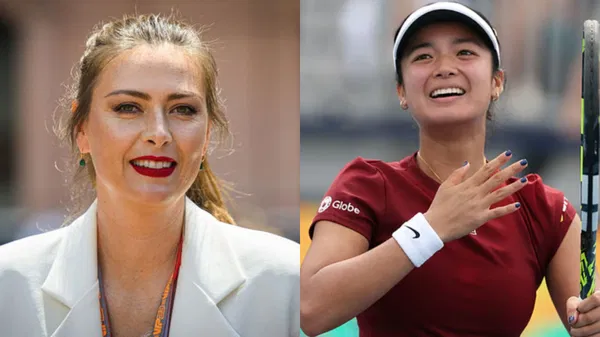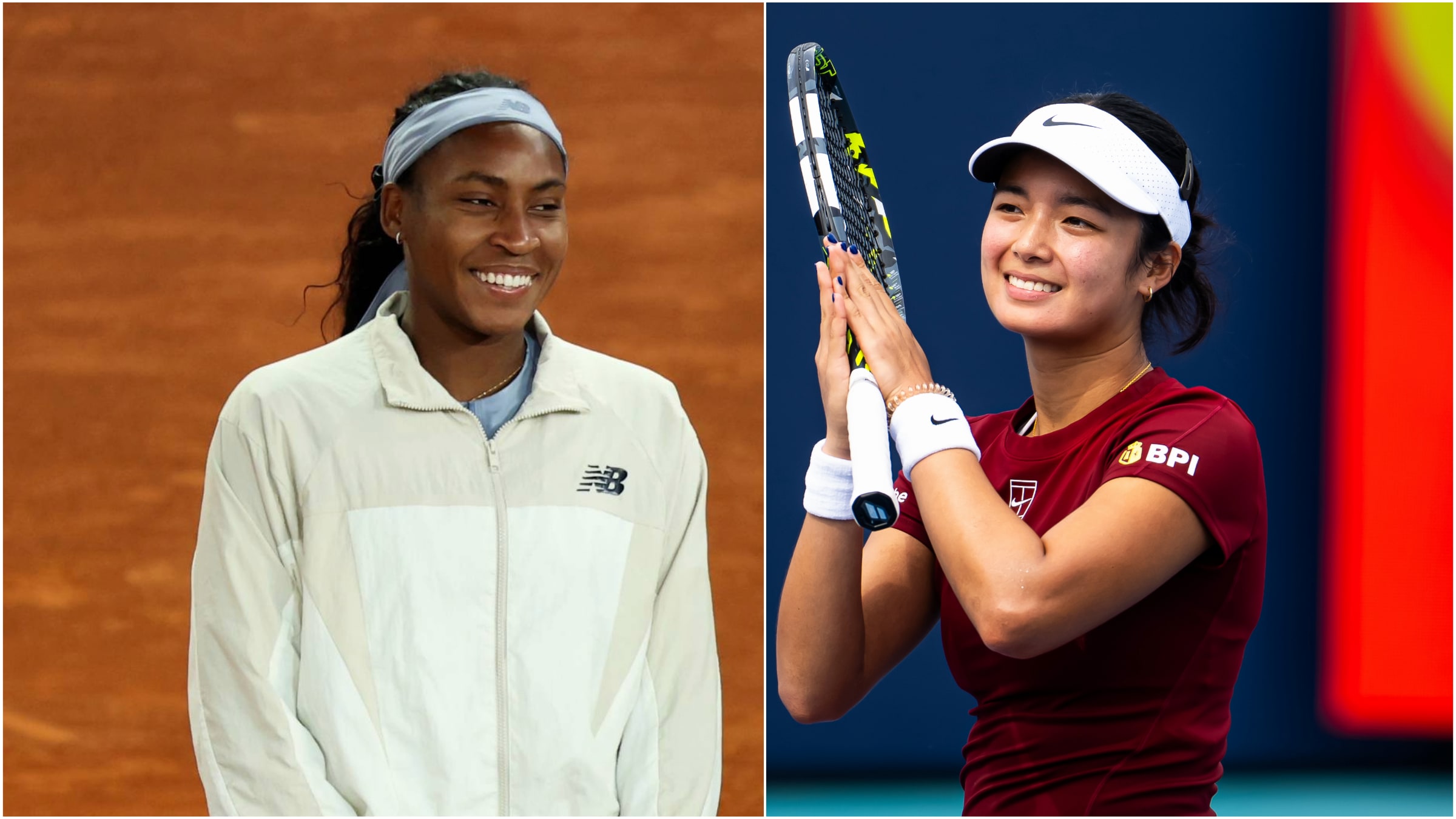The French Open final is meant to be a celebration of elite tennis, hard-fought rivalries, and emotional triumph. But this year, amid the usual red-clay drama and euphoric wins, a different narrative began dominating headlines — Aryna Sabalenka’s reaction to her loss. Not because she lost, but how she responded afterward, particularly to Coco Gauff, the young American rising star who had just booked her place in the spotlight.
What was expected to be a dignified exit from one of the tournament’s fiercest competitors turned into a talking point for all the wrong reasons. Aryna Sabalenka — known for her fire, fearless play, and honesty — crossed a line. And in doing so, she cast a shadow over what should have been Coco Gauff’s moment.
Let’s unpack what happened, why it felt childish, and why it was deeply unfair to Coco Gauff.
💥 A Moment That Should’ve Been About Gauff
Coco Gauff has been climbing the tennis mountain with relentless drive. After years of being tagged a prodigy, she’s matured into a complete player — graceful under pressure, intelligent in strategy, and unshakably composed. Her performance at Roland Garros this year was a testament to how far she’s come, beating seasoned players and proving that her 2023 US Open title was no fluke.
But when she defeated Aryna Sabalenka in the semifinals, all eyes turned not to Coco’s brilliance — but to Aryna’s outburst.
Instead of offering a handshake, or even a subtle nod of sportsmanship, Sabalenka stormed off court in frustration, visibly refusing to acknowledge Gauff’s win. Cameras captured her slumped in the tunnel, tossing her towel, and muttering about “lucky shots” and “rigged momentum.”
Whether her emotions were valid or not, the optics were damning.
🧒 Childish Antics From a World-Class Player
Sabalenka is no stranger to emotional tennis. Her power game is charged with passion, and fans often admire her raw authenticity. But tennis, like all elite sports, demands more than performance — it demands character.
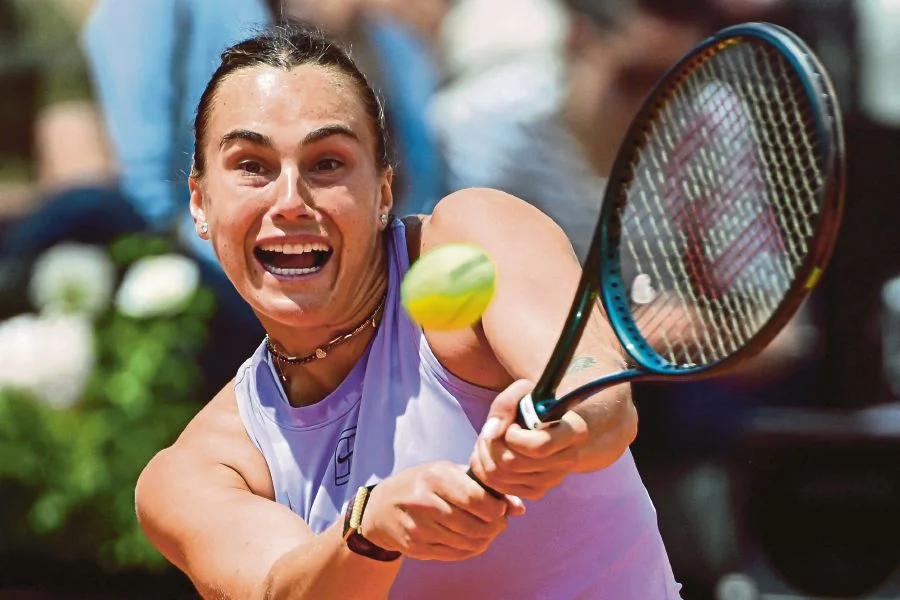
Instead of handling the loss with grace, Aryna displayed behavior that many saw as immature. Her unwillingness to credit Gauff’s performance — even in the post-match press conference — painted a picture of someone not ready to lose, even when bested fair and square.
Worse, she implied that Gauff benefitted from unfair conditions. “I felt like everything was helping her, not me,” she said. “The balls, the calls, the vibe.” Comments like this are more fitting for a schoolyard spat than a Grand Slam semifinal.
Fans watching were disappointed. What could have been a compelling sports narrative of rivalry and redemption turned into a lesson in poor sportsmanship.
🧠 Mental Toughness vs. Emotional Fallout
Ironically, Aryna Sabalenka has often spoken about her journey with mental resilience. She’s opened up about anxiety, choking under pressure, and learning to breathe through high-stakes moments.
But this loss revealed cracks in that armor. If mental strength is not just about winning but how you lose, then Sabalenka failed the test. Her reaction wasn’t just about a missed final — it was about control lost to someone younger, hungrier, and in that moment, simply better.
It’s not uncommon for athletes to struggle with this shift in dynamic. Coco Gauff, barely 21, represents the future. Sabalenka, still in her prime, may feel the pressure of defending her place among a new generation that plays fearless, adaptive tennis.
But that’s not Gauff’s fault.
🙅♀️ Why This Was Unfair to Coco Gauff
For Coco, the French Open was a chance to quiet doubters. Though she had already secured a Grand Slam title, she was still sometimes cast as a “potential” rather than a proven champion.
Beating Aryna Sabalenka should’ve sealed her status in the eyes of critics — a hard-earned win over a top seed known for her explosive game and Grand Slam pedigree. But instead of widespread celebration, the conversation was hijacked.
Sabalenka’s post-match antics stole the oxygen from Coco’s achievement. Even headlines the next day focused on the “controversy” rather than Gauff’s clinical performance.
And that’s not just unfair — it’s insulting.
Coco Gauff played smart, adjusting to Sabalenka’s pace, outmaneuvering her with superior court coverage, and holding nerve when it mattered most. She deserved better than to be cast as a beneficiary of luck or biased conditions.
🎙️ Tennis Needs Role Models, Not Just Champions
Sabalenka’s behavior highlights a deeper issue in professional sports: the line between emotional authenticity and unprofessionalism.
While fans admire honesty, they expect a basic level of respect — especially from athletes who represent not only themselves but an entire sport. The tennis world has long valued grace in victory and defeat. Think Federer losing to Nadal, or Serena congratulating her opponents even in bitter losses.
Aryna Sabalenka’s choice to sulk and cast aspersions on the match’s fairness sends the wrong message. It tells younger players that excuses are acceptable and that disrespect is a valid outlet for pain.
But tennis isn’t just about power and points. It’s also about legacy.
And if Sabalenka isn’t careful, she risks damaging hers.
📣 Social Media Reacts
Within minutes of Sabalenka’s reaction, social media lit up with debate. Twitter/X threads exploded with opinions — some defending her passion, others calling her behavior “unsportsmanlike” and “disappointing.”
Even neutral fans felt the sting. “I used to root for Sabalenka, but this made me pause,” one user wrote. Another said, “Gauff just played better. Stop taking the spotlight from her.”
On Instagram, Gauff posted a gracious thank-you message to her fans and team, making no mention of the drama. That silence spoke volumes. It showed maturity. It showed poise.
It made the contrast between her and Sabalenka even starker.
💬 What Comes Next for Aryna?
Sabalenka now faces a crossroads.
She can double down — blaming others, fanning bitterness, and letting rivalry turn into resentment. Or she can reflect, grow, and recognize that even champions lose. And how they lose is just as important as how they win.
She has the talent. She has the fanbase. She has the story.
What she needs now is the grace.
🌱 Redemption Is Still Possible
To be fair, Aryna Sabalenka is not beyond redemption. Sports history is filled with athletes who stumbled and learned — from McEnroe’s tantrums to Serena’s infamous US Open outburst. What matters most is what they did next.
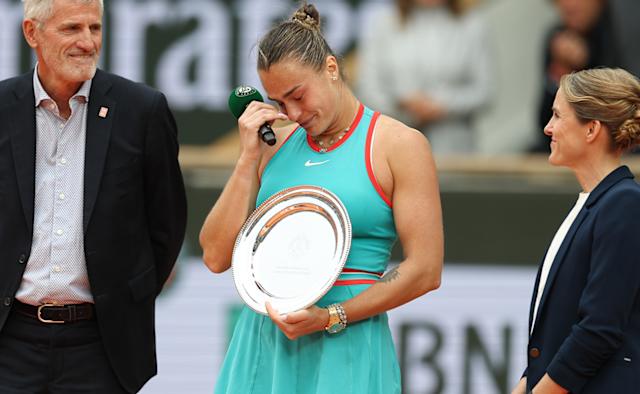
If Sabalenka comes out publicly to congratulate Gauff, or simply owns the moment with a sincere apology, fans will forgive. The tennis world, after all, is not built on perfection. It’s built on resilience and respect.
🎯 Final Thoughts: Let Coco Shine
The 2025 French Open should go down in history as a defining moment in Coco Gauff’s rise. But for that to happen, we need to stop centering Aryna Sabalenka’s reaction and start acknowledging Gauff’s brilliance.
Tennis, like any great sport, thrives on rivalry — but only when it’s wrapped in respect.
So let’s remember this match for what it was: a young star delivering greatness, and a veteran learning — perhaps the hard way — that the real test of a champion is not just how high they climb, but how they respond when someone else reaches the top first.
